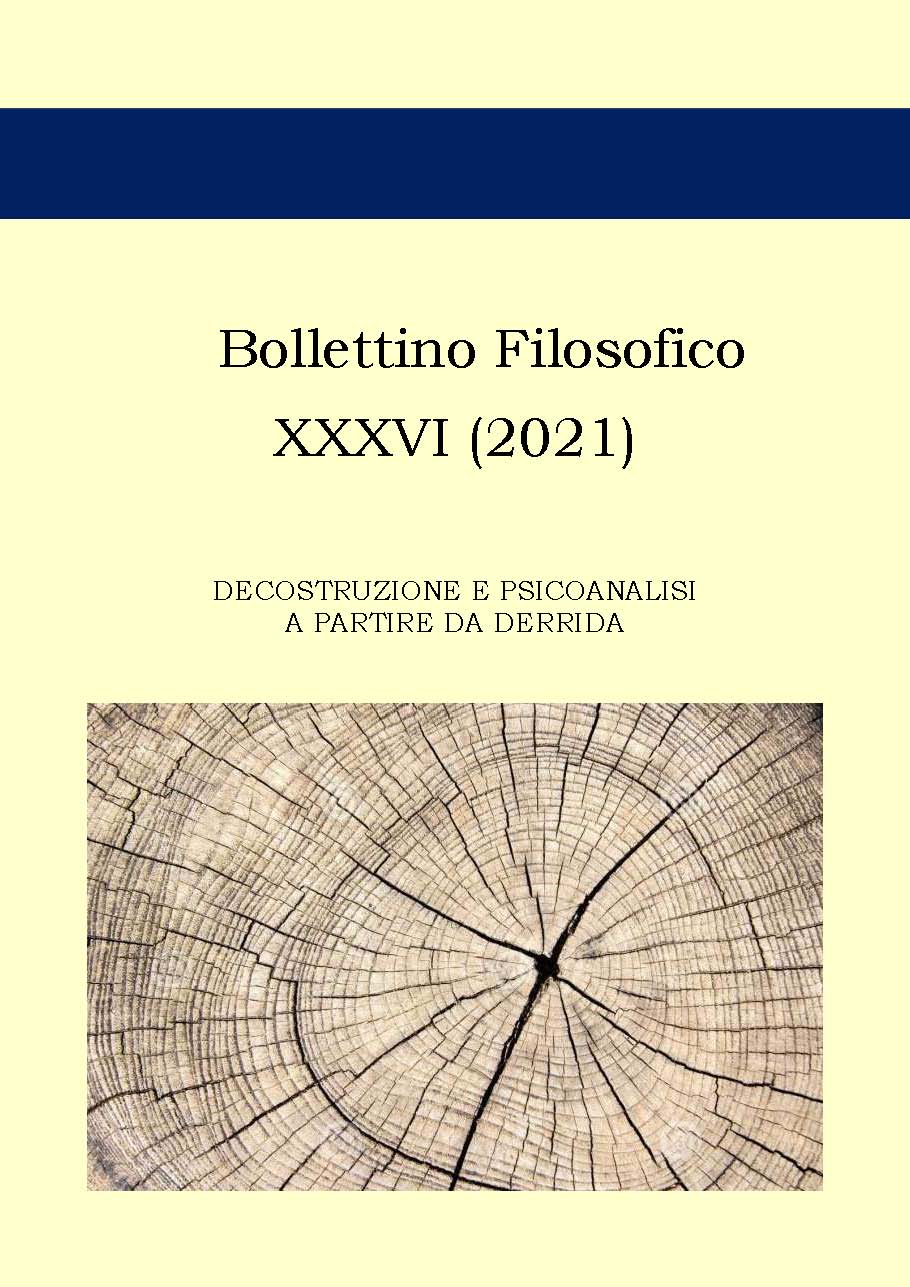Ridisegnare la soggettività. Sulla lettura derridiana di Valéry
Abstract
This paper wants to address the Derrida’s deconstructive – as well as articulated and well-founded – “reading” of the thought of Paul Valéry, focusing on the Cahiers and recovering two key-concepts contained therein: the voice and the implex. By reviewing the “aversions” of Valéry toward Freud and Nietzsche, as well as their “proximities”, both highlighted by Derrida in his text, we would like to re-establish the complexity and multiformity of both “notions”, bringing them back to their syntactic-conceptual root, which is peculiar to the Valerian way of thinking. In our view, indeed, when compared to the typical tone of Valéry’s reasoning, there is something “forced” in the hermeneutic grid used by Derrida, which risks to “veil” the problematic and critical aim that underlies the Valéry’s “rethinking” of the status of “subjectuality”, when he tries to locate – in the voice as well as in the implex – the “unerasable” marks of subjectual “doing”, a doing understood as a properly human poietic-poetic attitude, aimed at a re-construction and re-configuration of one’s own field of existence – beyond the stereotypies and exhibitionisms of an individual clinging to his own venerated figure.
Keywords: Implex, Psychoanalysis, Subjectuality, Valéry, Voice
Downloads
Bollettino Filosofico pubblica in internet, ad accesso aperto, con licenza:
|
|
CCPL Creative Commons Attribution |
L'autore conserva il copyright sul suo contributo, consentendo tuttavia a chiunque "di riprodurre, distribuire, comunicare al pubblico, esporre in pubblico, rappresentare, eseguire e recitare l'opera", purché siano correttamente citati l'autore e il titolo della rivista. L’autore, al momento della proposta di pubblicazione, è inoltre tenuto a dichiarare che il contenuto e l’organizzazione dell’opera è originale e non compromette in alcun modo i diritti di terzi, né gli obblighi connessi alla salvaguardia di diritti morali ed economici di altri autori o di altri aventi diritto, sia per testi, immagini, foto, tabelle, sia per altre parti di cui il contributo può essere composto. L’autore dichiara altresì di essere a conoscenza delle sanzioni previste dal codice penale e dalle leggi speciali per l’ipotesi di falsità in atti ed uso di atti falsi, e che pertanto Bollettino Filosofico è esente da qualsiasi responsabilità di qualsivoglia natura, civile, amministrativa o penale, e sarà dall'autore tenuta indenne da qualsiasi richiesta o rivendicazione da parte di terzi.
